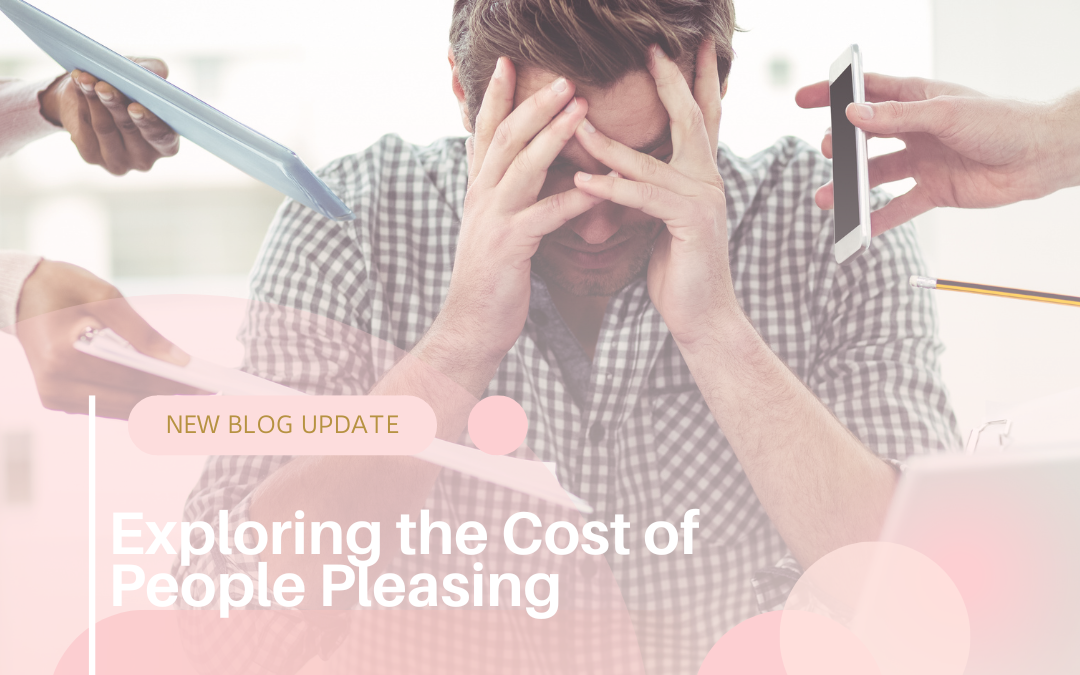You’re agreeable, helpful, and always there when someone needs you. People admire how kind and dependable you are.
But behind the smile and the automatic “yes,” you may feel exhausted, anxious, or even resentful.
If that sounds familiar, you might be caught in the cycle of people-pleasing—a well-intentioned habit that can quietly drain your energy and erode your sense of self.
Let’s talk about what people-pleasing really is, where it comes from, and how to start breaking free—without losing your compassion or relationships.
What Is People-Pleasing?
People-pleasing is the habitual prioritization of others’ needs, desires, and comfort over your own, often at the expense of your time, energy, and emotional well-being. It can look like:
-
Saying “yes” when you want to say “no”
-
Avoiding conflict at all costs
-
Constantly apologizing—even when you haven’t done anything wrong
-
Feeling guilty for putting yourself first
-
Defining your worth by how useful or likable you are
Though it might look like kindness on the outside, people-pleasing often comes from a fear-based place, not a love-based one.
Why Do We People-Please?
People-pleasing is often rooted in:
-
Childhood conditioning: If you learned early on that love and approval were conditional on your behavior, you may have developed people-pleasing as a survival tool.
-
Fear of rejection or abandonment: The idea of disappointing others might feel unsafe or deeply triggering.
-
Low self-worth: When you don’t believe you’re enough just as you are, you may try to “earn” your place through self-sacrifice.
-
Cultural or gender expectations: Some groups are socialized to be agreeable, polite, and accommodating above all else.
The problem is: What starts as a way to stay connected often leads to disconnection from yourself.
The Hidden Costs of People-Pleasing
-
Resentment – Saying yes when you mean no builds quiet bitterness.
-
Burnout – Constantly overextending yourself leads to emotional and physical exhaustion.
-
Loss of Identity – When your focus is always external, you may lose touch with your own values and desires.
-
One-Sided Relationships – You may attract or tolerate relationships where reciprocity is lacking.
-
Anxiety and Guilt – You feel anxious when others are upset and guilty when you try to take care of yourself.
How to Stop People-Pleasing Without Becoming “Selfish”
You don’t have to become harsh or unkind to set boundaries. In fact, honest relationships thrive on authenticity, not over-accommodation.
Here’s how to start shifting the pattern:
1. Pause Before Saying Yes
Buy yourself time. Say, “Let me get back to you,” or “Can I think about it?” This gives you space to check in with your needs.
2. Check in with Your Motivation
Ask yourself: Am I doing this from love, or from fear? Am I trying to avoid discomfort or earn approval?
3. Set Small Boundaries First
Start by practicing “no” in low-stakes situations. Remember, “no” is a complete sentence—and it’s not unkind.
4. Accept That You Can’t Control Others’ Reactions
Discomfort is a part of growth. Someone else’s disappointment doesn’t mean you’ve done something wrong.
5. Reclaim Your Own Desires
Spend time identifying what you want—what matters to you. Journal, reflect, or talk to a therapist to reconnect with your authentic voice.
The Power of Saying No
Every “no” to something that depletes you is a “yes” to something that nourishes you.
Your time, energy, and attention are precious. You don’t owe them to everyone.
Being kind to others doesn’t mean abandoning yourself.
True kindness includes yourself in the equation.
Final Thought
Breaking free from people-pleasing doesn’t mean becoming selfish or cold—it means becoming whole.
It means honoring your needs, speaking your truth, and showing up in relationships with authenticity rather than obligation.
Because the real you—the one who knows when to say yes and when to say no—is more than enough.


Recent Comments